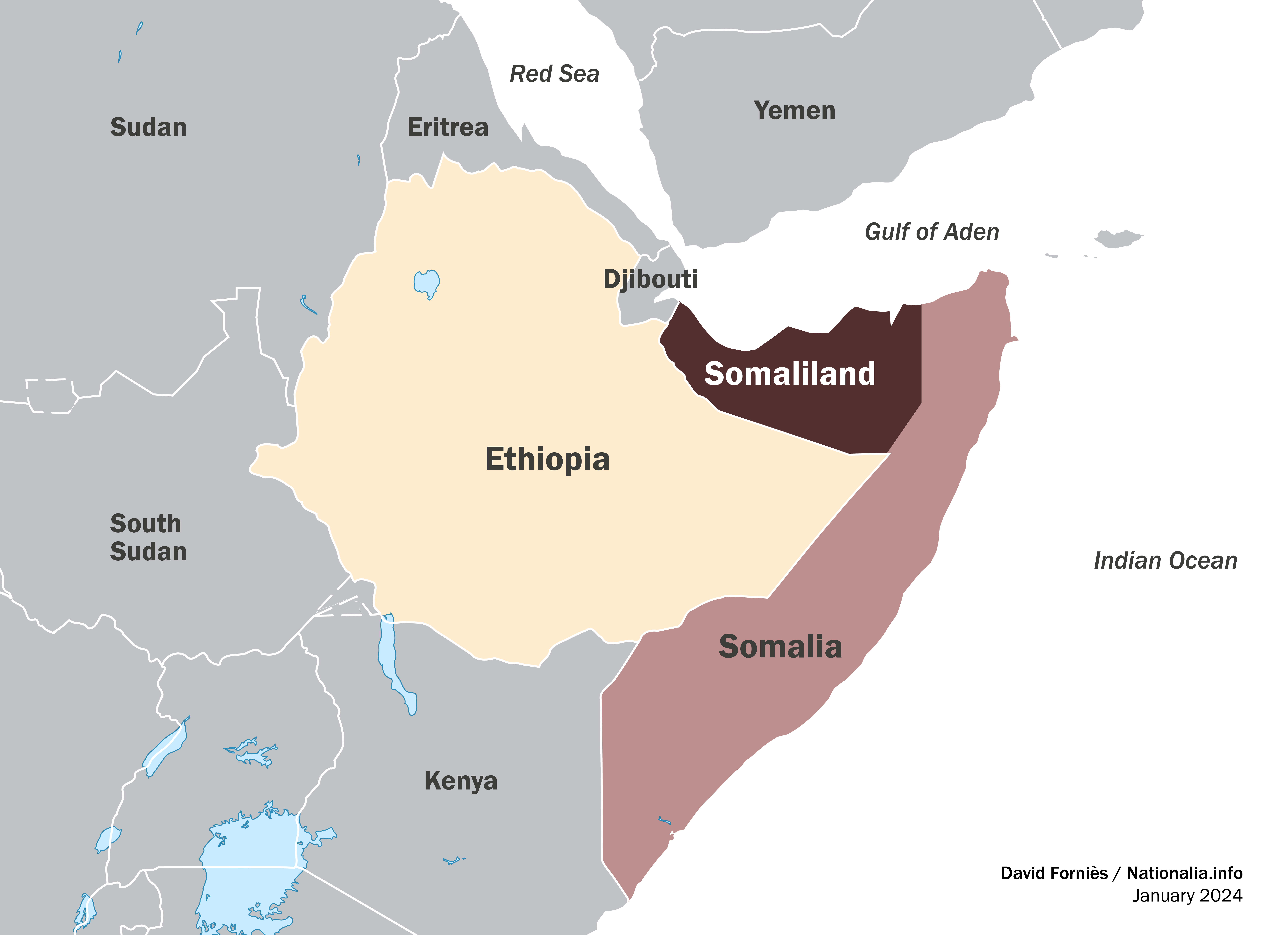News
Somaliland sees first recognition of independence closer
Ethiopia to make “in-depth assessment” on issue, following memorandum of understanding signed between both countries
Somaliland proclaimed independence from Somalia in 1991 after a ten-year war. The breakaway republic has not received official recognition from any United Nations member, although it maintains diplomatic relations with Ethiopia, the United Arab Emirates, and Taiwan, among others. Somalia rejects Somaliland independence and considers it one of six states making up the Somali federal republic.
The full text of the memorandum of understanding has not been made public and, from the information that has emerged, it appears that aspects remain to be defined. A statement from the Ethiopian government’s press service on X (formerly Twitter) on 3 January specifies that Ethiopia will “make an in-depth towards taking a position regarding the efforts of Somaliland to gain recognition.” Addis Ababa will also transfer a stake in Ethiopian Airlines to the Somaliland government. It will do so in exchange for the lease of a “permanent and reliable naval base and commercial maritime service in the Gulf of Aden.”
The Somaliland Foreign Ministry was more specific two days ago: also in X, it spoke of “formal recognition of the Republic of Somaliland” by Ethiopia and quoted Somaliland President Muse Bihi Abdi as saying that, “in exchange for 20 kilometre” —it did not specify whether square or linear— “sea access for the Ethiopian Naval forces, leased for a period of 50 years, Ethiopia will formally recognize the Republic of Somaliland, setting a precedent as the first nation to extend international recognition to our country.”

Somaliland authorities hope that future recognition from Ethiopia could bring some others, given Ethiopia’s ascendancy over several African governments. Somalia, which has described the agreement as a “violation of its sovereignty and unity,” will certainly not be one of them. The Somali government has recalled its ambassador to Ethiopia for consultations and appealed to the international community for support. Somali Prime Minister Hamza Abdi Barre says Somalia will defend its territory “by any means.”
Also opposing the deal is Egypt, one of Ethiopia’s regional rivals, with which it has a long-running dispute over water management of the Nile River and the Grand Renaissance Dam. The EU has issued a brief communiqué recalling “the importance of respecting the unity, the sovereignty and the territorial integrity of the Federal Republic of Somalia.”
Access to the sea is a matter of state
For months now, Ethiopia’s Prime Minister Abiy Ahmed has placed access to the sea at the heart of Ethiopian foreign policy. Until 1993, Ethiopia controlled Eritrean ports. But after Eritrean independence, the country became landlocked. Today, most goods entering and leaving Ethiopia pass through the port of Djibouti, the smallest state in the Horn of Africa region.
In a televised speech last October, Abiy recalled that by 2030 Ethiopia will have 150 million people “who cannot live in a geographical prison.” “This is an existential issue for Ethiopia,” he said. The Ethiopian leader offered the possibility of ceding part of the shares of the Great Renaissance Dam or of Ethiopian Airlines in exchange for a port. Eritrea, Djibouti, and Somalia rejected. Somaliland, and its independence, may eventually become an alternative route.
